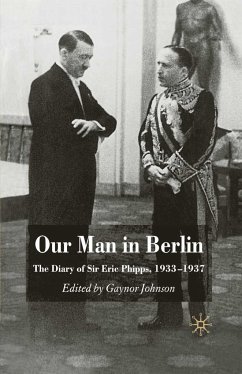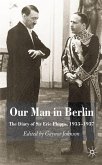Sir Eric Phipps was British ambassador to Berlin during the crucial period between Hitler's decision to withdraw Germany from the League of Nations to his decision to become involved in the Spanish Civil War. His diary offers a unique and often witty evaluation of Hitler and other leading Nazis and their domestic and foreign policies from 1933-1937. The diary entries are supplemented by linking contextual text as well as short biographies of key figures and suggested additional reading.
'Sir Eric Phipps was an acerbic and astute critic of Nazism between 1933 and 1937. Gaynor Johnson has therefore performed a great service to historians by editing his diary. Our Man in Berlin will be a key source on the period' - Peter Neville, Kingston University, UK
'Gaynor Johnson has done a great service to historians of international relations in editing Eric Phipps' diary. Publication of this fascinating source, illuminating as it does the recesses of British-German relations in the 1930s, is long overdue' - John W. Young, University of Nottingham, UK
'This book will become an indispensable source for anyone studying the origins of the Second World War.' - Erik Goldstein, Boston University
'Gaynor Johnson has done a great service to historians of international relations in editing Eric Phipps' diary. Publication of this fascinating source, illuminating as it does the recesses of British-German relations in the 1930s, is long overdue' - John W. Young, University of Nottingham, UK
'This book will become an indispensable source for anyone studying the origins of the Second World War.' - Erik Goldstein, Boston University








